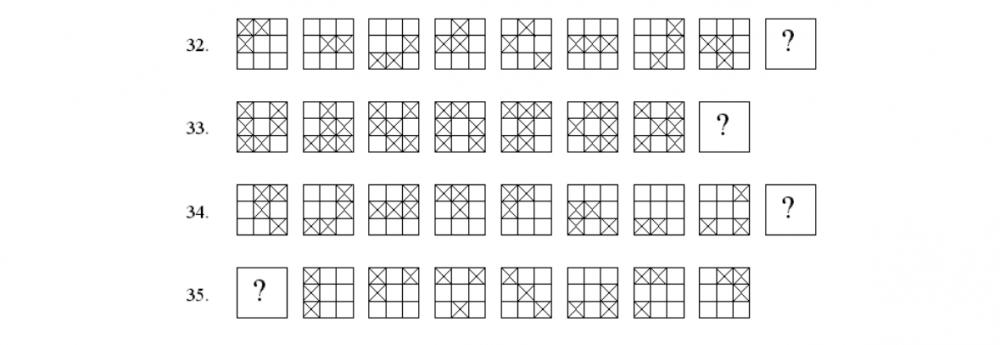All Activity
- Past hour
-
Nivin1423 joined the community
- Today
-
Markbel28 joined the community
-
Lutan6 joined the community
-
Johnfin30 joined the community
- Last week
-
Benrus5 joined the community
-
Ericlian853 joined the community
-
Gilrus593 joined the community
-
eSewa Hotels changed their profile photo
-
eSewa Hotels joined the community
-
Alwenas joined the community
- Earlier
-
Your website sounds like a fantastic resource for puzzle enthusiasts! Sharing it in forums like this is a great way to reach like-minded individuals. To further spread the word, consider: Posting in Puzzle Communities: Share your site on Reddit (e.g., r/puzzles, r/logicpuzzles) or other puzzle-focused forums. Social Media: Create accounts on platforms like Twitter or Instagram to showcase your puzzles and engage with fans. Collaborations: Partner with puzzle creators or bloggers to feature your site. Feedback: Encourage users to share their thoughts to improve engagement and refine your puzzles. Good luck with your site—it sounds like a fun challenge for puzzle lovers!
-
jonson23mack started following A physicist, a mathematician and a linguist walk into a bar ...
-
gurujiastrologer started following Online treasure hunt game
-
shaikafreen changed their profile photo
-
toms23roy started following Extremely HARD matrices problems. Very logical
-
Here are some five-letter verbs: Dance Blink Punch Throw Chase If you guys are looking for to explore more 5 letter words then visit Wordslibrary and explore as much as you can.
-
masonlava started following stupidest joke ever
-
jonson23mack started following Can't see the trick?
-
Lkucher changed their profile photo
-
shaikhiba changed their profile photo
-
Jeremymiller2001 started following Extremely HARD matrices problems. Very logical
-
Extremely HARD matrices problems. Very logical
Jeremymiller2001 posted a question in New Logic/Math Puzzles
-
vliveindia changed their profile photo
-
Helen Mejia changed their profile photo
-
Mel a Largo is a retirement home for elderly single term presidents
-
cadtrainings changed their profile photo
-
Quantum.Mechanic started following Dumb robot
-
Oudis started following Hi everybody…! Brainteasers for the not mathematically inclined?
-
Hi everybody, I’m new here – I’ve just joined the forum. I’d like to ask a question, I need some assistance. Because of personal circumstances I think my intelligence has become dull, perhaps my brain is a bit moldy (I can hear the rotors, nuts and gears inside my skull: they’re rusty). I’ve been thinking of purchasing a book of brainteasers, puzzles, riddles and the like, just to train my brain again – and by the way, I’m already sixty, and as they say, “Use it or lose it.” However, albeit not totally stupid, I’ve never been good at deductive or inductive reasoning, math, etc. I was – for reasons I won’t go into – “tested” in my youth. The tests confirmed what I already knew: I look but don’t see, I think but come up with nothing –and then, after a minute or a day, the answer is there, the whole of it – evident, simple, obvious. I have been “working on it” subconsciously. And all of a sudden –after a minute, a week, a month – the gestalt is there. I’ve checked a couple of online bookstores and found some titles; could anybody recommend a good book of brainteasers that do not require from me any previous knowledge of, for instance, math? I am not mathematically inclined… Geometric puzzles? I love them… But math? I can barely deal with basic arithmetic. I need problems I can solve by using simple… logic. Or common sense. Or that kind of subconscious thinking that people call “a hunch”. Here’s a brief list of the books I’ve found so far; I’d like to know where to begin, which one I should buy first. I’d like to start with a relatively easy, entertaining book, and go on buying increasingly difficult books of problems: · Logic Puzzles for Beginners Clouds Puzzles - 200 Logic Puzzles by Lorens Rober · Wrinklies Logic Puzzles: Brainteasers for Golden Oldies · Tangrams: 330 Puzzles (Dover Recreational Math)Mensa Visual Brainteasers By John Bremner · Sip & Solve Two-Minute Brainteasers by Paul Sloane · Mensa Visual Brainteasers By John Bremner · Mensa: Logic Brainteasers By Philip Carter · Canterbury Puzzles by Henry Ernest Dudeney · 536 Curious Problems and Puzzles by Henry Ernest Dudeney · More Puzzles And Curious Problems by Henry Ernest Dudeney · The Big Book of Puzzles (Puffin Books) by Ronald Ridout · Puzzle Baron's Big Book of Puzzles: Countless Hours of Brain-Challenging Fun · Perplexing Logic Puzzles: Solve more than 100 Brilliant Brainteasers (Welbeck Publishing Group) · King Arthur in Search of His Dog and Other Curious Puzzles by Raymond M. Smullyan · Martin Gardner Perplexing Puzzles and Tantalizing Teasers · Martin Gardner Codes, Ciphers and Secret Writing · Contemporary Brainteasers by Terry Stickels I would appreciate any advice/input/feedback. If there’s a book – the right book I’m looking for – that I still haven’t found, please let me know. Hope to join one of your discussions one of these days; thank you in advance, Oudis Post Scriptum: There are two Mensa books on the list, but if you think of me, don’t think Alan about Turing or Jean-François Champollion, think Forrest Gump.
-
We're only looking at the probability that you will die. With the red apples, eating one of the two safe apples means you're fine. So your probability of dying with the red bowl is: (3/5) * (2/4) or 30%. in this scenario, first and second must be poisonous. The green bowl has three ways for you to die. First and second, first and third or second and third. The probability of 1st and 2nd is (2/5) * (1/4) or 10%. The probability of 1st and 3rd is (2/5) * .75(1/3) = (2/5) * (3/4) * (1/3) = (2/5) * (1/4) = 10% The probability of 2nd and 3rd is: .6(2/4) * (1/3) = (3/5) * (2/4) * (1/3), we can simplify this to (1/5) * (1/2) = 10% so cumulatively you would have a 30% chance of dying from the red basket and a 30% chance of dying from the green basket. What a stupid puzzle.
-
clevera changed their profile photo
-
Some unnecessary code:
-
On the square A1 of a regular chessboard is a regular dice, face 1 up and face 2 in front. The only allowed move is to rotate the dice by 90 degrees to an adjacent square. Find the shortest way from A1 to B1 so that the dice ends in the same orientation (face 1 up and face 2 in front). Inspired by https://www.chiark.greenend.org.uk/~sgtatham/puzzles/js/cube.html
-
For every group of 6 people put on a lock that none of them have the key to. Then give the remaining 7 people each a key to the lock. This ensures no minority can open it and ensures that any group larger than 6 can open the chest. In total there are 13 choose 7 locks. And 7 * (13 choose 6) keys. The keys are distributed equally so each pirate (7 * (13 choose 6))/13 keys
-
CASE CONVERTER TOOLS changed their profile photo
-
Women and wine and wickedly wild Worcestershire! Rule: starts w “W”
-
twinselectric changed their profile photo
-
A robot is placed on the square A1 of a standard chessboard and has to reach H8. It understands orders Up, Down, Left, Right. On some squares, there might be a cement block; is such a case, the robot does not execute the order and continues with the next one on your list. There always is at least one possible path. The list of directions is finite. The robot might reach the destination somewhere in the middle of your list. Give the answer in the form UURRU. (This list will work i.e. on an empty 3x3 chessboard or with a single block on A3 but will fail with a single block on B3.)
-
There are 144 distinct solutions times 8 rotations and reflections for a total of 1152 solutions for the 4x4 Magic Court Card Puzzle. Solution # 1: AS KH QD JC QC JD AH KS JH QS KC AD KD AC JS QH. Solutions # 2: AS KH QD JC JD QC KS AH KC AD JH QS QH JS AC KD. Plus there's 1150 more solutions that satisfies the conditions that each of the four card ranks and four card suits appears only once in each of the four rows, four columns, and the two diagonals. This also works if the cards came from a four color deck.
-
After two years of war the Russians still haven't found Zorro
-
Yeah, that's not a very interesting definition of the state. Try the one I described. So if the angel and devil are approaching lantern 5, the state would be the state of lantern 5, followed by the state of lantern 6,..., ending with the state of lantern 4. This would be equivalent to cyclically bit shifting the binary number so the next lantern the angel and devil will visit is at the front. Say there are 5 lanterns: 1 is on, 2 is on, 3 is off, 4 is off, 5 is off. If the angel and devil are approaching lantern 4, the state is 00110. This is because looking forward from the pair's position they see off,off,on,on,off.
-
OK, let's say that a repeated pattern of lit/unlit lanterns is a win for the devil, regardless of the position of the angel and devil. Let's also say that if the angel and devil make a complete circuit of the path without either of them changing any lanterns, the devil wins (otherwise the angel can just stall indefinitely without ever getting any closer to his goal). In this scenario, the solution is: To explain the winning strategy, I'll first point out the following: So, to win the game:
-
My intention was to define repetition (Devil's win) as a repeated state of the lanterns and a repeated position of Devil and Angel, but looks like I failed to do it properly. My apologies.
-
I had this solution in mind, unfortunately, it fails because of repeated situations. Starting situation: 6 lanterns, only lantern 6 is lit. First round: lantern 1: no action lantern 2: devil turns it on remaining lanterns: angel does not do anything (If the devil turns a lantern on before the angel has turned any off, then the angel should just do nothing on that circuit. ) Situation: Lanterns 2 and 6 are lit 2nd round: lantern 1: no action lantern 2: angel turns it off (on each circuit, turn off all lit lanterns until the devil turns an unlit lantern on) Now, only the lantern 6 is lit: the game ends if the lanterns return to a previously encountered state What am I missing?
-
Evilhubert, your solution is exactly the solution I had in mind, congrats on solving! I'm happy that you found the puzzle enjoyable.
-
There's a solution that I find simple and elegant enough to be satisfying In my explanation, I'm going to think of the lanterns as numbered. The first lantern our celestial beings come to after starting the game will be Lantern 0. The next will be Lantern 1, then L2, L3 and so on. The last lantern can be referred to as LT, with T = Total number of lanterns minus 1. Each time they walk round the lanterns and return to L0 will be referred to as a circuit. So who wins? So what's the winning stragegy? But how can we prove the strategy will always work for any number of lanterns? I just want to give a big thank you to witzar for posting the problem - I really enjoyed this one!







.thumb.png.9ebb38d8f805ed9d842669e691ab898e.png)
.thumb.png.cb277aee067cd6b80929f46f8f634166.png)

